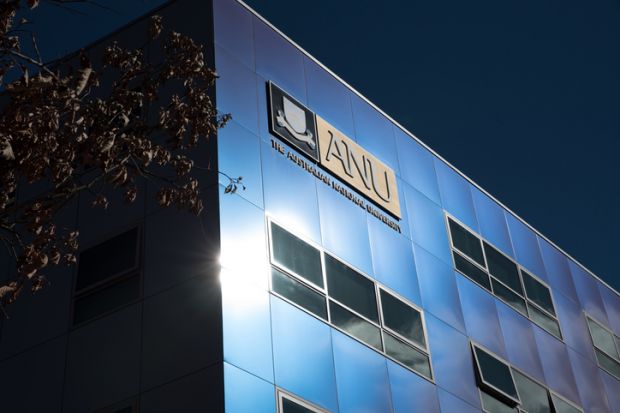The Australian National University will not allow its international student cohort to increase any further, following an unprecedented growth spurt which boosted foreign student numbers by 61 per cent in just three years.
ANU vice-chancellor Brian Schmidt told journalists on 23 July that the university had reached an “appropriate” size. “If we get any bigger, we will not be better,” the ABC reported him as saying.
“The university is at a size of roughly 20,000 full-time students and so we’re not intending to grow, both international or domestic. [It is] about as big as it can be right now.”
Last week, Times Higher Education reported confidential Education Department data showing that the ANU had increased the overseas proportion of its student body by one-third between 2014 and 2017.
The university boosted its foreign enrolments from 5,550 to 8,950, elevating the international share of students from 27 per cent to 36 per cent.
The number of newly commencing overseas students rose from about 2,800 to 4,300 over that period, while domestic enrolments fell by about 50, or 0.5 per cent.
An ANU spokeswoman told THE that the university now expected the foreign share “to hold fairly steady”.
“ANU, as Australia’s national university, seeks to have a student community that reflects the diversity of our country and the diversity of our world,” she said.
“Our staff and students draw on the best research from across the globe and that is what continues to attract the best people to join us. ANU is doing its part to bring Canberra to the world and the world to Canberra.”
However, the university’s latest annual report shows that satisfaction rates are about five percentage points lower among international students than their domestic counterparts.
Professor Schmidt made his comments during a Canberra press conference to announce a gift of Aboriginal art to the university.
Professor Schmidt told reporters that he did not think a national limit on international student numbers was warranted, following the opposition Labor Party’s revelation that it would consider a cap as a “last resort”.
Shadow employment and workplace relations minister Brendan O’Connor said such a move would be a response to “gaming” of visas and exploitation of international students in the workplace. “If you come here on a student visa, then it has to be for that purpose primarily,” he said on 23 July.
“But if you are really coming here for work, and you are just signing up to Mickey Mouse courses, you are gaming the temporary immigration visa system and we are allowing the undermining of the reputation of our education system. It’s clear that, given the massive spikes in the use of the student visa, there are circumstances where people are coming only to work.”
Register to continue
Why register?
- Registration is free and only takes a moment
- Once registered, you can read 3 articles a month
- Sign up for our newsletter
Subscribe
Or subscribe for unlimited access to:
- Unlimited access to news, views, insights & reviews
- Digital editions
- Digital access to THE’s university and college rankings analysis
Already registered or a current subscriber? Login










